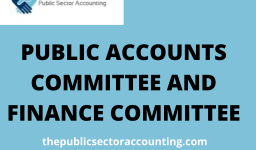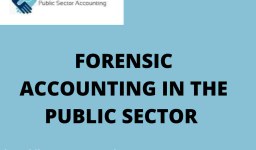Ghana has 17 public sector institutions. Public sector institutions in Ghana are the major institutions in Ghana. You may be asking for or seeking the list of public sector institutions in Ghana. If so, then you are in the right place. Public sector accounting has put together a complete list of all the public sector institutions in Ghana for you.
Public Sector Institutions in Ghana
The public sector is a component of the economy that includes all levels of government as well as government-controlled businesses. It excludes private businesses, non-profit organizations, and households.
A Complete List of Public Sector Institutions in Ghana
Below is the complete list of 17 public sector institutions in Ghana with their websites to visit.
- African Parliamentarians Network Against Corruption: apnacafrica.org
- The Electoral Commission
- Parliament
- Judicial Service
- National Development Planning Commission
- Public Procurement Authority: ppbghana.org
- Office of the President
- Internal Audit Agency
- Ministry of Justice and Attorney-General: gov. gh
- Local Government Service: lgs.gov.gh
- Ministry of Finance and Economic Planning
- Ministry of Trade and Industry: moti.gov.gh
- National Association of Local Authorities of Ghana:
- Bank of Ghana: bog.gov.gh
- Ghana Stock Exchange:
- Ghana Standards Authority: gsa.gov.gh
- National Communications Authority
- Energy Commission
- Public Utilities Regulatory Commission: purc.com.gh
- Ghana Ports and Harbours Authority
Public Sector
The public sector is a component of the economy that includes all levels of government as well as government-controlled businesses. It excludes private businesses, non-profit organizations, and households.
The general definition of the public sector involves government ownership or control rather than just function, and so encompasses activities such as exercising public authority or enforcing public policies.
The core public service in central and subnational government agencies defines the inner circle of the public sector when depicted as concentric circles.
As evidenced by employment connections and the right to exercise public power, the separation between the public and private sectors is relatively clear in this situation.
The next circle contains a variety of quasi-governmental organizations that are, however, outside of the government’s direct chain of accountability. Social security funds and regional development organizations are two examples.
The outer circle is filled with government-owned enterprises, which are usually defined by the government owning the majority of shares or the majority of the company.
Since the 1980s, many developed countries have seen big privatizations of state-owned businesses, either in whole or in part. Examples include airlines and the telecom industry, but public ownership is still common, for example, in public transportation in the cities where people live.
The word “public sector” is also used to describe a comparison between the commercial sector and the third, or voluntary, sector.
This makes it possible to map the scope of government activity inside the larger economy (also allowing for comparison across space and time). It also draws attention to unique patterns and operational methods in the public sector.
The problem of identifying the public sector is becoming increasingly difficult for academics. Privatization, delegation of public power (for example, in prisons), joint public-private provision of services, sometimes referred to as “public,” and institutional reorganization have made identifying the public sector challenging, particularly for comparative study. Given the difficulties in identifying precise borders, the concept of the “public sector” has lost all conceptual strength for some.
I hope you find this list of public sector institutions in Ghana useful.
please leave a comment





Leave a comment